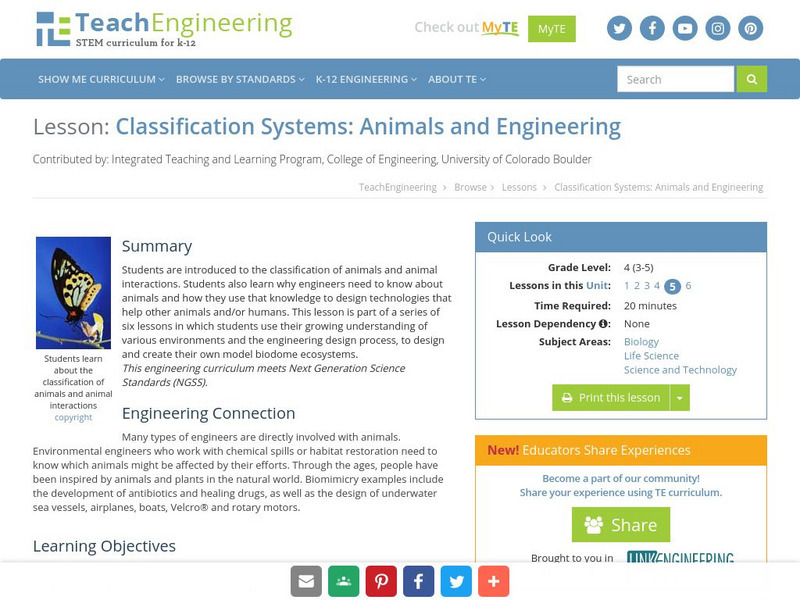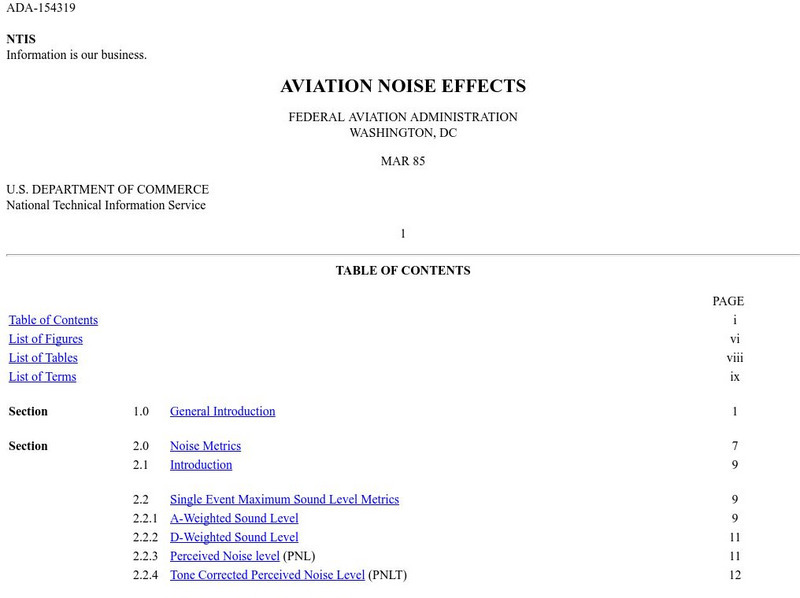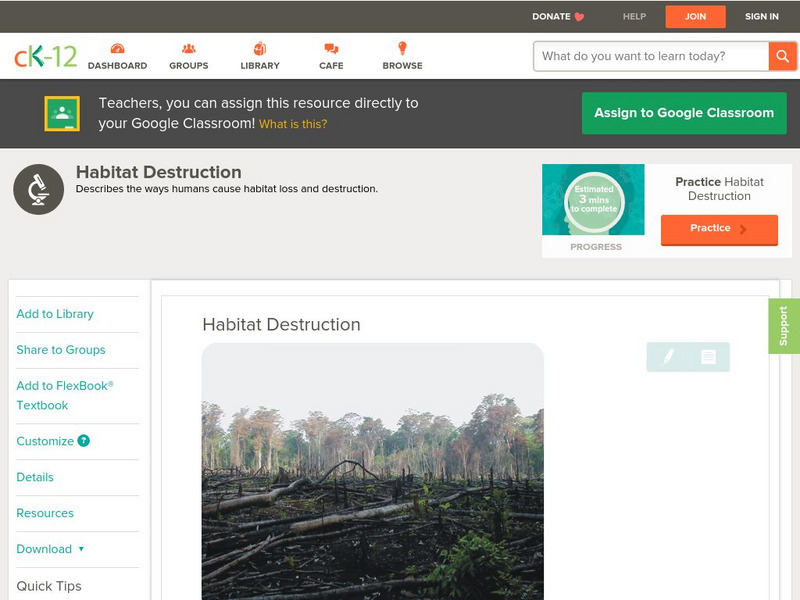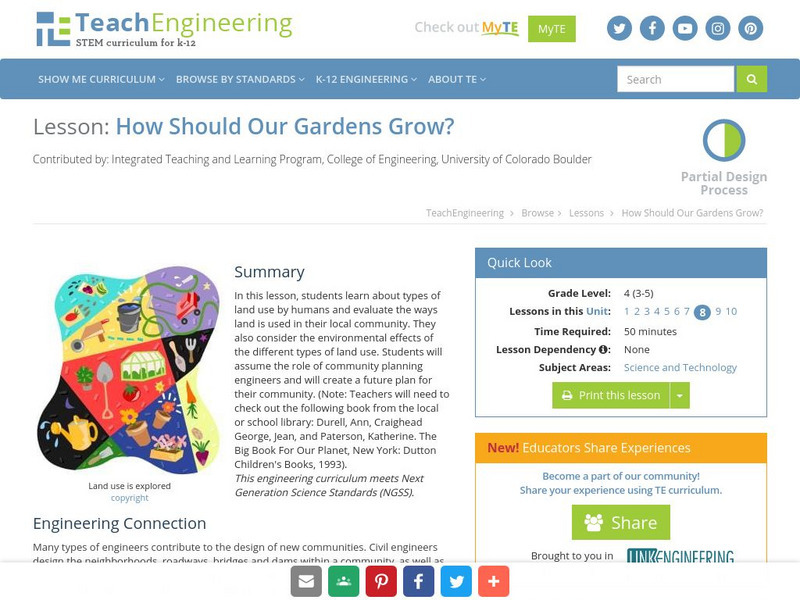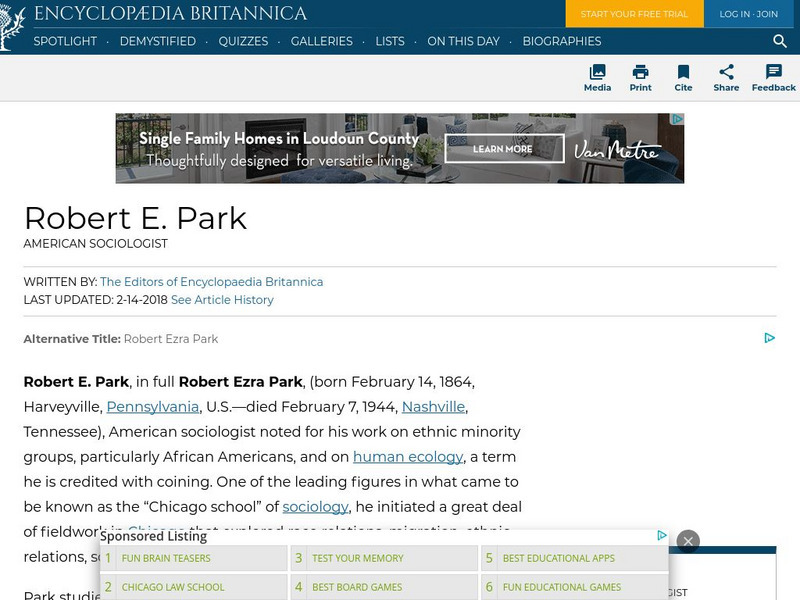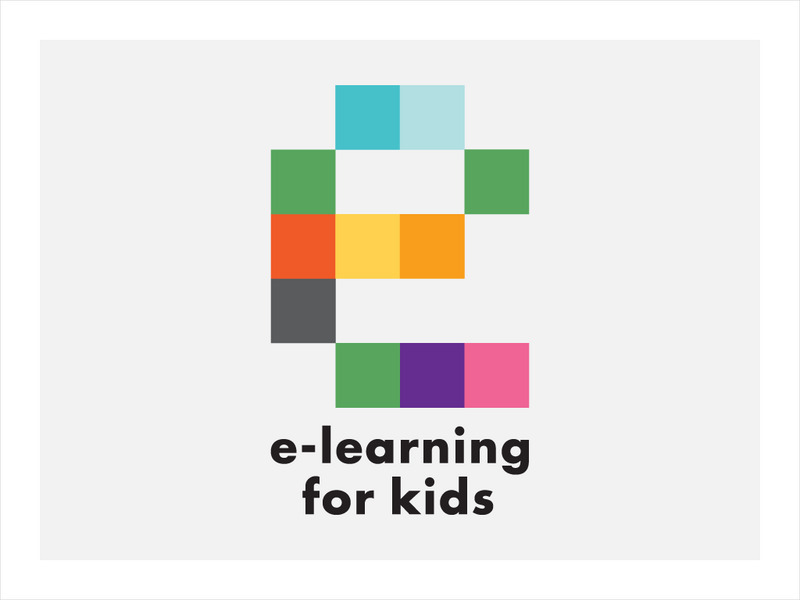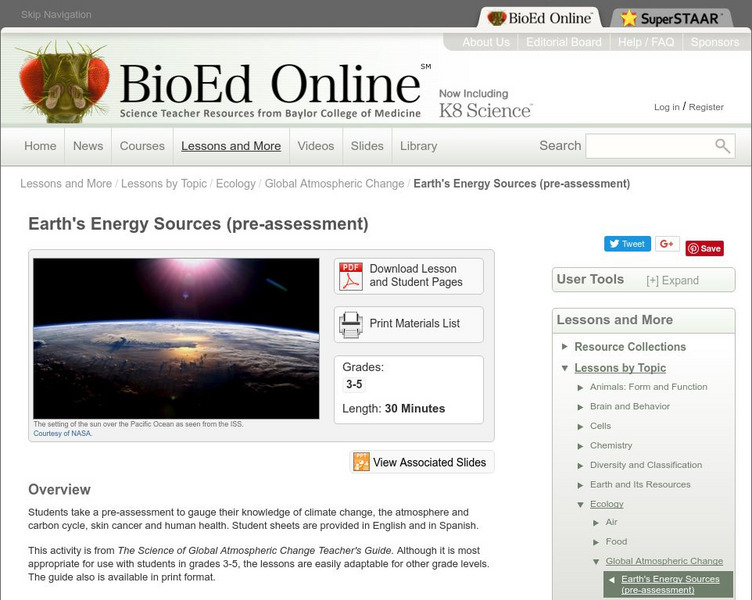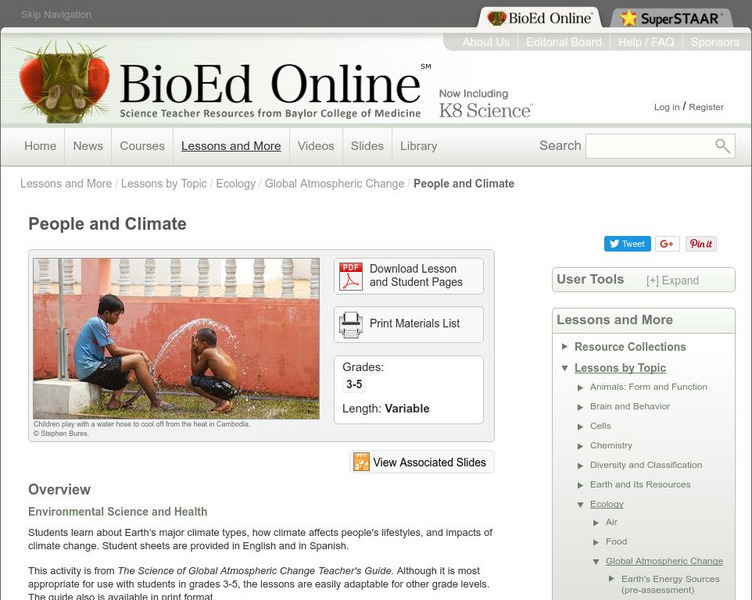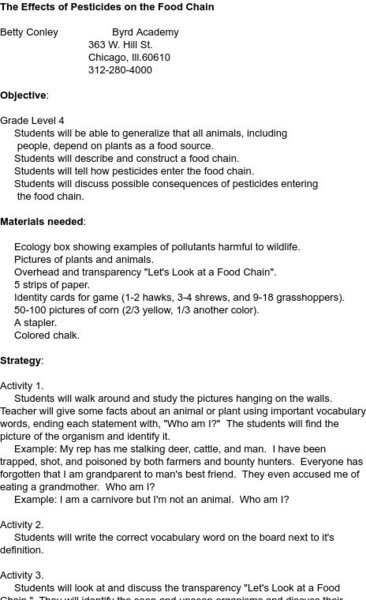US Geological Survey
Lake Baikal: A Touchstone for Global Change
This site is an interesting article about Lake Baikal in Russia. This unique lake is helping scientists to learn more about the patterns of ecological change in the world and about the history of the world.
TeachEngineering
Teach Engineering: Animals and Engineering
Young scholars are introduced to the classification of animals and animal interactions. Students also learn why engineers need to know about animals and how they use that knowledge to design technologies that help other animals and/or...
Cornell Lab of Ornithology
Habitat Network: Encouraging Beneficial Insects Pays Off
Find out why insects are an excellent sign of a healthy ecosystem, as they play a vital ecological role.
Other
Noise Pollution Clearinghouse: Aviation Noise Effects
Very comprehensive, easily indexed site on the technical, ecological, and physiological effects of aviation noise.
CK-12 Foundation
Ck 12: Life Science: Habitat Destruction
[Free Registration/Login may be required to access all resource tools.] From a human point of view, a habitat is where you live, go to school, and go to have fun. Your habitat can be altered, and you can easily adapt. Most people live in...
PBS
Pbs Learning Media: Comparing Education Around the World
Students learn about Ken and Joab, two boys who are starting first grade. Ken attends school in Japan, while Joab lives in Kenya. Students compare and contrast the circumstances surrounding the two boys' experiences at school.
University of Chicago
University of Chicago Centennial Catalogues: Faculty: Robert E. Park, Sociology
A profile of Robert E. Park (1864-1944), an influential, early sociologist who taught at the University of Chicago.
TeachEngineering
Teach Engineering: How Should Our Gardens Grow?
In this lesson plan, students will learn about types of land use by humans and evaluate the ways land is used in their local community. They will also consider the environmental effects of the different types of land use. Students will...
CK-12 Foundation
Ck 12: Life Science: Succession
[Free Registration/Login may be required to access all resource tools.] Ecosystems are "dynamic." This means that ecosystems change over time. Both natural forces and human actions cause ecosystems to change. Learn more about succession...
PBS
Pbs Learning Media: Untamed: The Wildlife Center of Virginia
In this learning module with the video series UNTAMED: The Wildlife Center of Virginia, students will learn from Ed Clark, the staff of the Wildlife Center of Virginia, and special guests discuss the issues facing wildlife and what...
Encyclopedia Britannica
Encyclopedia Britannica: Robert E. Park
This entry from Encyclopedia Britannica features Robert E. Park, an American sociologist noted for his work on ethnic minority groups, particularly African Americans, and on human ecology, a term he is credited with coining. One of the...
PBS
Nh Pbs: Nature Works: Temperate Deciduous Forests
NatureWorks offers some fascinating information about the Temperate Deciduous Forests. Students and teachers will learn what makes these forests special, what animals live in this biome, what plants grow in this biome, and more.
E-learning for Kids
E Learning for Kids: Science: Pacific Ocean: Mexico: Why Must We Care for the Environment?
Join Mateo on his trip to Mexico. During his trip, he will teach all about conservation, and contributing to a healthy environment.
TeachEngineering
Teach Engineering: Product Development and the Environment
In this activity, students investigate the life cycle of an engineered product and how the product impacts the environment. They analyze a product using a simple life cycle assessment that assigns fictional numerical values for different...
Teachers.net
Teachers.net: Acid Rain Go Away
in this lesson plan young scholars conduct an experiment to find out how acid rain can harm plants.
BioEd Online
Bio Ed Online: Earth's Energy Sources (Pre Assessment)
A pre-assessment at the beginning of a unit on global atmospheric change. It checks understanding of issues around climate change and the impact it has on the environment and on human health. The lesson and accompanying slideshow can...
BioEd Online
Bio Ed Online: Why Is Water So Important?
In this post assessment activity students review points covered in the attached unit and reach conclusions regarding the importance of water to human health. Student sheets are provided in English and in Spanish.
BioEd Online
Bio Ed Online: About Air
In this instructional activity students will use popcorn of different colors to model the composition of air. They learn that gases occupy space, air is a mixture of different gases, and the oxygen needed by the human body is not the...
BioEd Online
Bio Ed Online: The Science of Global Atmospheric Change: People and Climate
The impact that climate and climate change have on humans is explored in this lesson plan. Students learn about climate zones, and factors that affect climate, e.g., proximity to the ocean and greenhouse gases. The lesson plan and...
BiologyWise
Biology Wise: Understanding the Process of Biological Magnification
Biological magnification is the term used to described the increasing accumulation of substances in organisms as one looks at higher trophic levels in a food chain. When that substance is a toxin, such as a heavy metal or a pesticide,...
BioEd Online
Bio Ed Online: Needs of Living Things: Pre Assessment
This is a pre-assessment to be done at the beginning of a unit on the needs of living things. Students draw themselves and what they need to survive. The lesson can be downloaded in PDF format.
BioEd Online
Bio Ed Online: Living Things and Their Needs: We Need Water
This lesson focuses on living things' need for water. Students make lemonade and learn that water can be found in liquids other than a glass of water, and is also found in plants. The lesson can be downloaded in PDF format.
BioEd Online
Bio Ed Online: Can Nutrients in Water Cause Harm?
Many different kinds of organisms live in water. Excess nutrients can cause over-abundant growth of some organisms living in water and non-point source pollution is a major threat to water supplies in the United States. In this lesson...
Science and Mathematics Initiative for Learning Enhancement (SMILE)
Smile: The Effects of Pesticides on the Food Chain
Lesson plan to construct and explain a food chain. Includes games and activities to teach and reinforce concepts.



